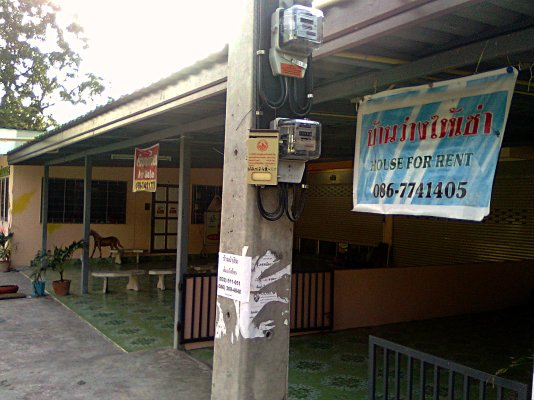Welcome back to the US. I was only gone for 25 years and traveled back frequently during that period but still found myself needing culture and language adjustments. We've been back 10 years and there are still moments...[FONT=Verdana, sans-serif]I have been following this post since the beginning and thought perhaps I could tell my story and it may just give some insight to those thinking about living abroad during retirement. Just some ideas from my own experience that may be helpful or maybe not, in which case I apologize for taking your time.[/FONT]
[FONT=Verdana, sans-serif]I have lived outside the US since 1974. I recently returned here to the US and am now an expat in my own country. I made this decision because I know, when I am older and may not be able to live on my own, I do not want to live with one of my sons and their families. I want to have the option of making a choice and that may have to be an assisted living type arrangement. [/FONT]
[FONT=Verdana, sans-serif]I am now healthy, probably more healthy than I have ever been, now that I have time to take care of myself and not worry about j*bs or children or a husband. I have purposely come here to try and get used to this country where I feel very much a foreigner. In 35 years you miss a lot. I don't know the TV shows or the “famous” people many talk about. I don't get the jokes sometimes. I do know that while I am still young enough to learn, I must re-adopt this country that I left so long ago and actually never really missed. [/FONT]
[FONT=Verdana, sans-serif]I will keep my home in Italy, it is paid for and upkeep is minimal. It is my paradise, my safe haven. Still, I will stay here part of the year and learn to live this other life also. I know I need to do this and I have always been one to plan ahead and not leave things to chance if I can help it. So here I am.[/FONT]
[FONT=Verdana, sans-serif]Those of you who are only now embarking on or wishing to embark on your expat experience, keep this in mind. You may have to or want to come back when you are no longer as self-sufficient as you are now. In which case, you better have thought it all out. How to return and the money and healthcare needs that may arise in the future. Retirement is not all about (only) now, but many of us will reach declining years when it may not be best suited to being on your own without the support network that the US is famous for (assisted living, hospice, etc). I am not talking about Medical, as I actually love my Doctors in Italy much more than the ones I have had occassion to meet with her. Find the whole system here so cold and impersonal...I am not only talking to the single people, couples will face, sooner or later, that one of the couple will die or get too sick to care for. Perhaps a third-world country can offer very inexpensive 24/7 in home care, but I am not sure that would be what I would want, personally. I would want to speak my first language. Although I am fluent in Italian, will I retain that if perhaps my mind starts going? I certainly hope I “go” in my sleep long before any of this is needed. [/FONT]
[FONT=Verdana, sans-serif]I consider myself very fortunate to be able to make this choice today. I will be popping back and forth as I like for now. [/FONT]
[FONT=Verdana, sans-serif]I am just planning for the future, so that I can live my life on a whim. [/FONT]
Queenie
Having two countries and the option to live in either is a wonderful thing. We had that for many years and look forward to having a place abroad once again. You do make an important point, that people need to keep their options open.



